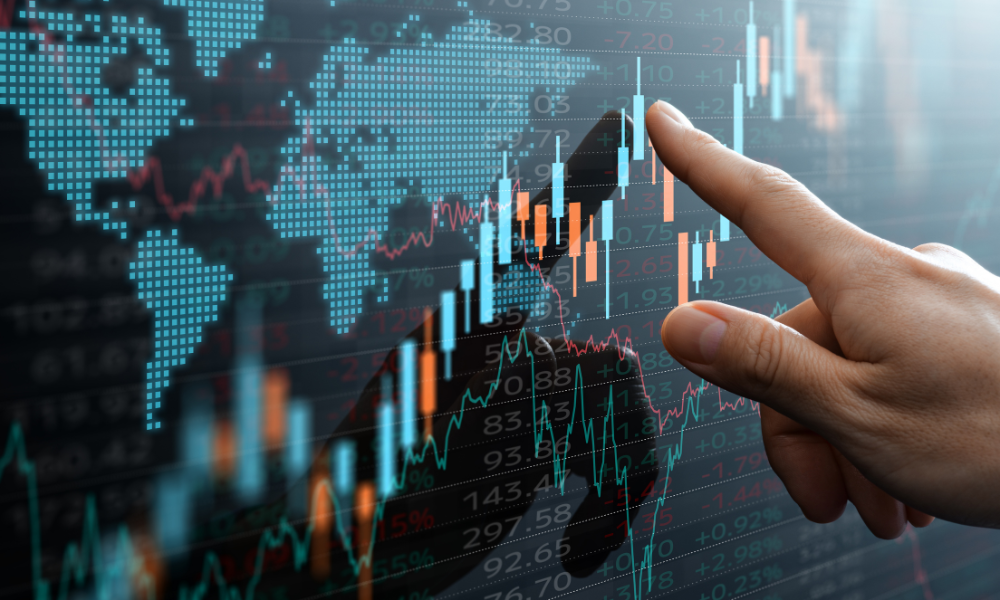

by Bailey Lipschultz
Equity benchmarks around the world have recouped their losses in a roller-coaster six-week stretch since the acceleration of US President Donald Trump’s tariff offensive.
The temporary trade truce between the US and China boosting dozens of benchmarks, and helped some including the S&P 500 to exceed their levels from before the tariffs were proposed on April 2. Gauges from countries that bore the brunt of the president’s threats — like those in Hong Kong, China and Canada — have risen back above their early-April levels.
Hong Kong’s Hang Seng Index has rallied 17% from last month’s low, while China’s CSI 300 Index has risen more than 8%. Some European indexes including the UK’s FTSE 100 and France’s CAC 40 remain on the doorstep of recouping losses since the tariffs were unveiled.
“The market in the short-term is not really considering what could happen in the next two or three months,” said Jian Shi Cortesi, a portfolio manager at Gam Investment Management in Zurich. “Just like when Trump was elected and everyone said ‘this is great for the market’ and the market just rallied, then he put on tariffs and the market just crashed. The market keeps trying to predict somebody that is quite unpredictable.”
Trump’s desire to remake the global trade environment, much of which involves proposing or implementing high tariffs on numerous countries, has sowed uncertainty across global markets. MSCI’s all-country stock index fell 8.6% in the two days after the April 2 announcement, and volatility measures like MOVE for Treasuries and VIX for equities surged.
The unwinding of that move and push back into risk assets has seen havens retreat, with the Swiss Franc and Japanese yen weakening to levels not seen since early April on Monday. However, gold only dented its outperformance since April 2 and pared a yearly gain to 24%.
Some strategists reacted quickly. Goldman Sachs’s David Kostin boosted his 12-month S&P 500 forecast to 6,500 from 6,200, implying another 11% upside on the lower tariff rates, on prospects for stronger economic growth and smaller risks of a recession. Nomura Holdings Inc. strategists upgraded Chinese stocks to a “tactical overweight.”
“There’s a long way to go in the negotiations and in the detail, but the market seems to be relieved that it’s not a disaster,” said Thomas Martin, senior portfolio manager at Globalt Investments.
More than $13 trillion of market cap has been added back to MSCI’s all-country stock index from an April 8 low, data compiled by Bloomberg show, as the gauge trades at the highest level since early March. That may set the stage for a steady push into stocks as investors regain confidence.
“Any day without Trump talking about raising tariffs is a good day for the stock market,” Ed Yardeni, the founder of Yardeni Research in New York, said in the wake of the announcement. The “market wants Trump to declare victory in his trade war and move on to other less turbulent issues.”
Copyright Bloomberg News

Financial services compliance consultant ACA Group told InvestmentNews it had four clients report receiving emails that impersonated David Bottom, the SEC's chief information officer, with smaller firms being targeted.

Financial advisor Derek Wittjohann shares the lessons he learned after leaving a major wirehouse to set up his own practice in the second installment of InvestmentNews' new 'Independence Stories' series.

Whether a firm manages $50 million or $5 billion in client assets, building a succession strategy needs to be a priority at least a decade out from retirement.

RIA assets are key for broker-dealers right now.

The former investment advisor misled clients in a decade-long scheme to fund international travel expenses, country club fees, and other personal expenses, according to three government agencies.
Orion's Tom Wilson on delivering coordinated, high-touch service in a world where returns alone no longer set you apart.
Barely a decade old, registered index-linked annuities have quickly surged in popularity, thanks to their unique blend of protection and growth potential—an appealing option for investors looking to chart a steadier course through today's choppy market waters, says Myles Lambert, Brighthouse Financial.
